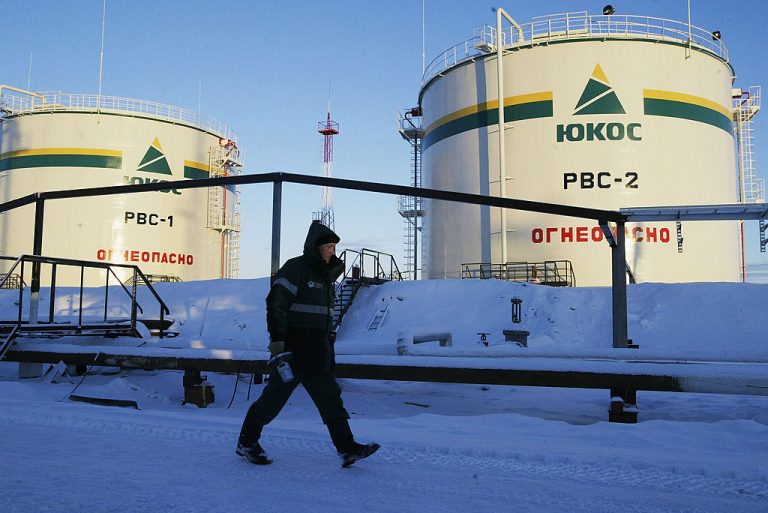As the invasion of Ukraine continues into its third month, Russia has continued to supply a large amount of gas to many European countries.
However, the aftermath of sweeping financial sections from Western powers has resulted in some European buyers opting to reduce gas purchases from Russia. On May 1, Russian President Vladimir Putin again reiterated that “unfriendly” countries would have to pay for gas in rubles.
READ MORE:
- Oil Prices Fall 3% in Global Trade as US, China Adjust for Impact of Ukraine War
- Russia Orders Gas Payments In Rubles by All ‘Unfriendly’ Countries by March 31
- Everything You Need to Know About North American Gas Prices Following Russia’s Invasion of Ukraine
On April 29, Russian-state-owned energy company Gazprom announced that it had cut off supplies to Poland and Bulgaria and would not restart these until payments are made in rubles. Russian authorities are hoping that payments made in rubles would shore up Russia’s currency, and benefit its economy.
Gazprom also revealed that its natural gas exports to China had gone up by 60 percent in the first four months of the year compared to the same period last year, and said its natural gas sales to non-Commonwealth of Independent (CIS) countries had dropped to 50.1 billion cubic metres in the first four months — down 26.9 percent from the same time last year.
Sino-Russian energy alliance
In February, Putin and Chinese leader Xi Jinping signed an estimated US$117.5 billion worth of oil and gas deals. One of the deals was a 30-year contract to supply gas to China via the Power of Siberia 2 — a 1615-mile-long pipeline originating in the Bovanenkovo and Kharasavey gas fields of Russia’s far east — supplying 10 billion cubic meters of gas to to Heilongjiang Province in China’s northeast.
Success
You are now signed up for our newsletter
Success
Check your email to complete sign up
“Considering the contract signed in February, Russian gas shipments to China via the Far East routes could reach 48 billion cubic meters per year,” Gazprom, which has a monopoly on Russian gas exports by pipeline, said in a statement.
The new pipeline is expected to be up and running by 2026 and will mean that — together with the existing pipeline — will increase the annual supply of natural gas by 48 billion cubic meters, compared to 10 billion cubic meters in 2021.
Russia already sends large supplies of gas to China via its Power of Siberia 1 pipeline, which began pumping supplies in 2019 via the shipping of liquefied natural gas (LNG). In 2021, Moscow exported 16.5 billion cubic meters of gas to China.
Gazprom is also working on plans for another pipeline — named the Soyuz Vostok — that would run through Mongolia, and would mean an additional 50 billion cubic meters of gas each year for China.
In 2021, China’s total gas consumption was 372.5 billion cubic meters — 167.5 billion cubic meters of which was imported [from Russia] according to official Chinese data. China’s gas imports also increased by 19.9 per cent in 2021 from a year earlier.
Chinese interests tied to Russian energy
As Europe seeks to end its reliance on Russian fuel, China — the world’s biggest energy consumer — has opposed sanctions against Moscow, and vouched that its trade relations with its neighbor to the North, including cooperation on oil and gas, will continue as normal.
Before the war in Ukraine, Russia exported about 170 billion cubic meters of natural gas to the European market every year.
Despite increasing pressure from the U.S. and its Western allies demanding that Beijing address its Russian counterpart and take a stand on the war, the Chinese regime — along with various other non-Western countries including India — has not condemned Russia’s invasion of Ukraine, which the Kremlin has called a “special military operation.”
Beijing has also been willing to extend economic lifelines to Moscow, lifting all restrictions on Russian wheat in February, and encouraging “peace talks” in order to resolve the conflict in Ukraine.
Some observers noted that the communist authorities may fear the extension of Western sanctions to cover China, and find themselves in a complicated position where they have to remain “neutral” in the public eye, yet have billions of dollars tied to Russian energy deals.














